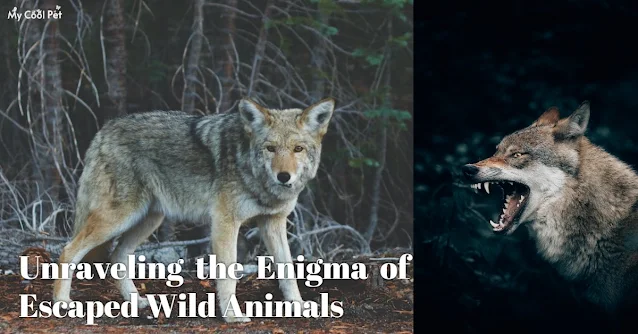Unraveling the Tale of Berlin's Elusive Lion
The hunt for an alleged lion roaming the outskirts of Berlin seized the spotlight for days, leaving the masses speculating about its origin. Surprisingly, keeping even the most exotic pets in Germany proves remarkably facile.
A formidable team, comprising hundreds of police officers, veterinary specialists, and skilled hunters, embarked on an expedition to uncover the whereabouts of the "free-ranging, dangerous animal" that might have been a lion lurking within the wooded areas at the southern periphery of Berlin. On Friday, the police postulated that the creature could very well be a wild boar.
According to the regional public broadcaster RBB, Brandenburg alone boasts 23 registered lions under the aegis of state nature conservation authorities, with three circuses, two zoos, and a private household providing shelter. Remarkably, none of these majestic felines were reported missing.
Regrettably, there exist no reliable statistics indicating the number of lions held as pets across Germany; however, it is generally not forbidden.
Germany's scant regulations concerning the ownership of wild animals have led to instances of tarantulas, crocodiles, and even tigers being housed in German households.
Unraveling the Enigma of Escaped Wild Animals
Over the decades, media has witnessed recurrent accounts of venomous snakes and other wild animals escaping not just from zoos and circuses, but also from private residences.
The summer of 1994 saw the rise to stardom of the diminutive alligator, "Cayman Sammy," after its owner decided to take it along for a sunbathing adventure near a lake close to the city of Dormagen. The alligator made its bid for freedom, leading to a captivating saga of escape and recapture that spanned several days.
In August 2019, the city of Herne was abuzz with the escape of a venomous snake from a man's apartment, where he harbored over 20 venomous serpents. After days of covert hide-and-seek, the monocled cobra was discovered in the stairwell of a residential building, necessitating the evacuation of 30 residents from the premises and neighboring houses.
The substantial costs incurred during these searches prompted the state government of North Rhine-Westphalia to draft stringent legislation pertaining to the possession of wild animals. Alas, this proposed legislation never came to fruition.
The Peculiar World of Trading Wild Animals Online
The denizens of Germany have the option to acquire exotic animals through pet trade websites on the internet. The Federal Environment Ministry, while acknowledging the international legal framework, emphasizes that "the more endangered the species, the stricter the trade restrictions."
The Washington Convention on International Trade in Endangered Species (CITES) regulates the international trade of protected animal species, encompassing several endangered species such as certain great apes, parrots, elephants, and rhinos.
However, while the trade of such protected species captured from the wild is prohibited for private individuals, there exist loopholes allowing the trade of animals bred in captivity.
A study conducted by the animal rights organization "Pro Wildlife" for the German Federal Ministry for the Environment between 2017 and 2019 delved into the trade of exotic mammals, reptiles, and amphibians in Germany. During a mere six-month period, they stumbled upon 33 offers for lions, six jaguars, and six leopards on relevant websites, with asking prices starting at a mere few thousand euros, comparable to the price of a purebred dog. The organization's biologist, Katharina Lameter, disclosed that much of this trade, including that of lions, remains legal if proper paperwork and vaccinations are in order.
Unveiling the Quandary of Wild Animal Living Conditions
The Federal Species Protection Ordinance and the Animal Welfare Act lay down the groundwork for regulations pertaining to the care of wild animals. However, the task of wildlife management in Germany is delegated to its 16 states. Owners of wild animals are required to report their possession, as well as every purchase and sale of animals, to the respective lower nature conservation authority. Most states have imposed restrictions on the ownership of potentially dangerous animals, necessitating owners to demonstrate proper animal handling and appropriate care according to the species.
Alas, the enforcement of these rules and regulations varies across the country and is not consistently rigorous. Instances of inspections on private animal owners remain rare.
In 2021, a white lion caught the attention of the media when a farmer in Saxony-Anhalt was reported by an animal welfare group for housing the creature in enclosures that violated size specifications. Consequently, the veterinary office levied a fine and banned the farmer from ever keeping lions again. After a protracted legal battle, the owner claimed to have sold the lion to the Netherlands. However, the creature never reached its intended destination, and its whereabouts continue to remain shrouded in mystery.
Championing Animal Welfare in Europe
Animal rights activists have raised concerns about the notion of "appropriate" living conditions. The Federal Ministry of Agriculture has issued guidelines for animal husbandry, emphasizing the importance of adhering to natural living conditions, scientific knowledge, and zoo-biological experiences. The guidelines stipulate that outdoor enclosures must encompass a minimum area of 200 square meters for a single animal or a pair, while indoor enclosures must provide at least 20 square meters of floor space and a height of 2.5 meters.
Various animal welfare groups express skepticism about the feasibility of housing large predators like lions in private enclosures with such confined dimensions. In their natural habitats, these majestic beasts thrive in prides of up to 40 individuals, roaming territories as vast as 400 square kilometers.
PETA, the animal protection organization, vehemently advocates for a comprehensive ban on keeping wild animals in private households. Their position is rooted not only in the potential hazards but also in the severe plight endured by these creatures due to inadequate living conditions.
Animal welfare advocates in several European countries share a common goal of providing enhanced protection for exotic animals by implementing a binding positive list enumerating all species that may be kept in private homes. France, Belgium, and the Netherlands have already taken steps in this direction with their existing lists.







